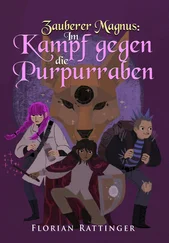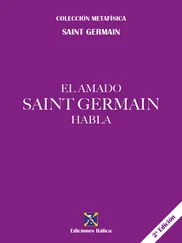Sylvie Germain - Magnus
Здесь есть возможность читать онлайн «Sylvie Germain - Magnus» весь текст электронной книги совершенно бесплатно (целиком полную версию без сокращений). В некоторых случаях можно слушать аудио, скачать через торрент в формате fb2 и присутствует краткое содержание. Год выпуска: 2008, Издательство: Dedalus Ltd, Жанр: Современная проза, на английском языке. Описание произведения, (предисловие) а так же отзывы посетителей доступны на портале библиотеки ЛибКат.
- Название:Magnus
- Автор:
- Издательство:Dedalus Ltd
- Жанр:
- Год:2008
- ISBN:нет данных
- Рейтинг книги:3 / 5. Голосов: 1
-
Избранное:Добавить в избранное
- Отзывы:
-
Ваша оценка:
- 60
- 1
- 2
- 3
- 4
- 5
Magnus: краткое содержание, описание и аннотация
Предлагаем к чтению аннотацию, описание, краткое содержание или предисловие (зависит от того, что написал сам автор книги «Magnus»). Если вы не нашли необходимую информацию о книге — напишите в комментариях, мы постараемся отыскать её.
Magnus — читать онлайн бесплатно полную книгу (весь текст) целиком
Ниже представлен текст книги, разбитый по страницам. Система сохранения места последней прочитанной страницы, позволяет с удобством читать онлайн бесплатно книгу «Magnus», без необходимости каждый раз заново искать на чём Вы остановились. Поставьте закладку, и сможете в любой момент перейти на страницу, на которой закончили чтение.
Интервал:
Закладка:
In the apartment left unoccupied, near the Oberlaa baths, dust gathers on the packing-cases, unwashed glasses and damask tablecloth. The Schneewittchen stem stands stark in the emptiness, its dried leaves and petals forming a delicate scree on top of Magnus the teddy bear’s head and round the champagne cork lying between his paws.
Resonances
‘Magnus? Who is Magnus?’ May had asked.
Magnus is a teddy bear with worn fur, covered with dry shrivelled rose petals. A stale smell of dust emanates from him. Schneewittchen, the rose was called.
Magnus is a man of about forty, broad-shouldered, with an angular face. He walks with a limp. He gives an impression of solidity and despondency, of extreme solitude. Iceberg is the other name for that rose.
Loneliness whose big heart is clogged with ice…
‘Have you ever experienced the slow distortion of love?’ Peggy asked him in a letter.
No, not the distortion. All Magnus knows of love is the crazed waiting, doubts and anguish, and the bliss. A great deal of bliss. And the chasm of grief, the devastation of loss, twice over. But the second time, it was he who opened up the chasm.
‘I hope it’s something you’ve never had to live through, and never will,’ she added.
He has done something worse than let love turn to revulsion — he has offered it up, live, for slaughter, by mistake, and through anger, in the name of a cold hatred suddenly turned furious, incandescent. A hatred stronger than his love.
My wits begin to turn.
Come on, my boy. How dost, my boy? Art cold?
I am cold myself.
‘What about May, what’s become of her? And Peggy? Did they stay behind in Comala?’
May, with your long black braid, Peggy, with your red-gold hair.
She and You both stand there, elsewhere, nowhere, each in our degree :
‘What do you mean to do?’
. . let Time go by till my change come .
Black milk of first light …
We dig in the air a grave …
Fragment 25
When Magnus leaves hospital, equipped with a walking stick, it is already well into autumn. His disability is going to qualify him for a pension before long. Thus concludes the dramatic accident of which he was a victim. For so it has been classified — an accident, not a killing.
There will be no trial. Clemens Dunkeltal will be tried neither for his last murder nor for the innumerable crimes he perpetrated in the past. Seated in the armchair he is confined to as an invalid, he has just committed his last crime by getting one of his faithful friends to administer a poison that will allow him to make a cunning exit behind the mask of the charming Mr Döhrlich. That Walter! The whole affair is suppressed even before it has had time to be picked up, to become known.
What good will it do to try setting himself up again as the dispenser of justice? Magnus has lost everything by having too impetuously, presumptuously, played at being detective and avenger. He went rushing in like an enraged ram charging an obstacle harder than its own forehead. The obstacle finally gave way, reduced to smithereens, but it brought everything down with it. Magnus is now no more than the witness of his own misdeed, his own insane conduct. Witness for the prosecution, with no mercy for himself.
Magnus closes the door to the apartment for the last time. Everything is in order. Everything — in this case, nothing.
The place has been cleaned and emptied: the order of nothing prevails. Moving has turned into clearance. The furniture, household goods, and odds and ends have ended up in a sale room. Peggy’s clothes he has wrapped in the damask cloth, and this shroud weighing as much if it contained her dead body he has thrown into the Danube. A river grave for Peggy’s flowery dresses, striped dresses, polka-dot dresses, butterfly-patterned dresses, cardigans, shawls, shoes and underwear.
The Dunkeltal affair is laid to rest, buried in the respectable Döhrlich family vault where father and son lie side by side in everlasting complicity.
Meanwhile the body of love decomposes in silence, in the coldness of the earth, perishing with loneliness. Its grave is modest, very stark. Its outer layers of silk, cotton, satin, Tergal and wool, its smell, its perfumes dissolve in the opaque waters of the river.
Love’s beautiful body and its fabric outer layers stripping away desire, love’s crazed body and its sensual flesh rot in the mud, in the mire.
Once again Magnus is starting out from zero. As when the Gomorrah hour struck — an ever abysmal moment on the dial of his life. And this zero is not only burdened with very crowded memories, and fraught with loss, it is seared with remorse and helplessness.
A complete nothing reigns inside him, and this nothing creates neither order nor clarity. It leaves in his spirit only confusion and a taste of dust. Shame and remorse are not so quickly dispelled.
He leaves Vienna, his only luggage being two bags, containing clothes, a few books, some letters, his teddy bear, and Lothar’s death mask.
He does not return to London, nor does he move to Rome. He sets off with no particular destination. It is enough for him to know where he does not want to go: Vienna, London, Rome, three cities from which Peggy’s absence banishes him. ‘Magnus, an unidentified Icelander!’ Scott had suggested one evening. Magnus could at last go to the country presumed to be the land of his birth — but to seek whom? To find out what? The enigma of his birth is now less of a torment to him than that endless boundless night when his love came to grief.
He is looking for a neutral, remote place, a place of a water clock nature, where he can let Time go by till his change come . What change? He does not know, but for him this not knowing is now the only adventure worth while.
He goes to France, where he avoids the big cities. He flees the crowds, the noise, company of any kind. Passing through Morvan, he finds the part of the country in which to establish his solitude. He moves into a house reduced to two rooms and attached to a barn and a stable more spacious than the house itself, near a small village called Bazoches with a château rising above it. There is a broad view from this place, extending over fields and forest, and opening out in the distance over the hills of Vézelay. These names suggest nothing to him. Magnus is a stranger to this land, and to its history, and this ignorance suits him. He has come to cleanse his gaze, purge it of an excess of images. He is just a bear-man wanting to hibernate.
Echo
You hear rustlings. Laughter … after … Time-worn laughter, as though weary of laughing … weary of laughing … And voices wasted … wasted …
All this you hear … you hear …
The trees whisper evensong, the meadow grass gently sways…
You hear rustlings…
The spirit of love … heavenly light on this earthly world … earthly world …
The day will come when these sounds … you hear these sounds will die …
will die you hear … die
You hear the silence you hear
nothing … hear nothing …
Fragment 26
Magnus’s hibernation lasts a long time, several seasons, but generates no torpor, no passivity. It is totally taken up with doing a job no less slow than intangible: allowing time to decant, day after day, hour by hour. This is a process similar to erosion, or the formation of stalactites in a cave; a process that demands fantastic patience, concentration, scouring of the mind. A laying bare of oneself.
Читать дальшеИнтервал:
Закладка:
Похожие книги на «Magnus»
Представляем Вашему вниманию похожие книги на «Magnus» списком для выбора. Мы отобрали схожую по названию и смыслу литературу в надежде предоставить читателям больше вариантов отыскать новые, интересные, ещё непрочитанные произведения.
Обсуждение, отзывы о книге «Magnus» и просто собственные мнения читателей. Оставьте ваши комментарии, напишите, что Вы думаете о произведении, его смысле или главных героях. Укажите что конкретно понравилось, а что нет, и почему Вы так считаете.












